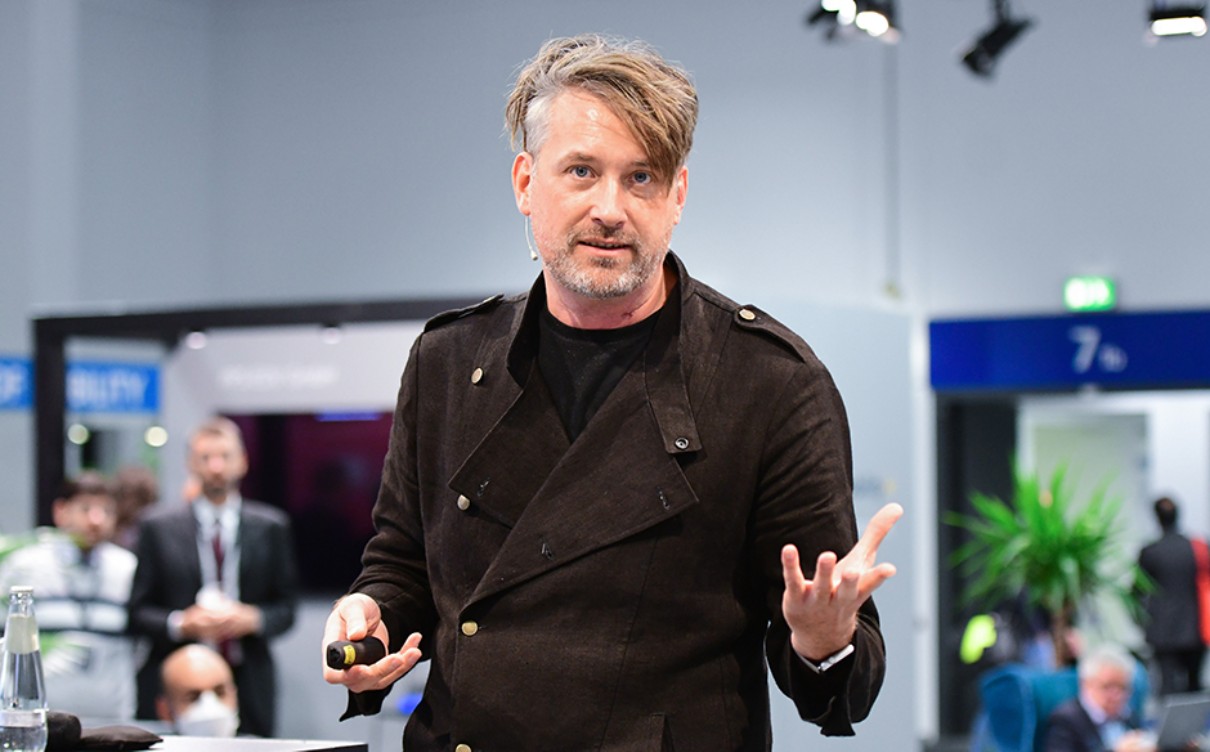Page content
New at InnoTrans: the Mobility+ platform
Providers of complementary mobility services had their own exhibition area for the first time at InnoTrans 2022: Mobility+. One of their major themes was the use of apps for sustainable travel, and some world firsts were presented. The supporting programme also included a lecture by cybersecurity expert Mirko Ross.
Some exhibitors in the Mobility+ area had set themselves the goal of making sustainable travel attractive and enabling the mobility turnaround with the development of corresponding apps. Axon Vibe AG, Switzerland, introduced its new Tokyo Nudge app, which has been developed together with the East Japan Railway Company. Based on location, context and travel intention, the artificial intelligence-driven mobility and rewards platform "compensates" the passenger with a free drink or snack in case of disruption.
Via Bonvoyo, the app of Deutsche Bahn Connect GmbH, companies can reward their employees with individual mobility budgets for local public transport, bike sharing or the ICE train. Bonvoyo also displays CO2 values of selected means of transport. Taf mobile GmbH, Jena, Germany has also developed a mobility budget solu- tion together with Israeli HopOn Ltd. It includes a digital credit system for employers and institutions as well as a specially developed dashboard for easy administration. Employers can provide employees or customers with a special budget for the use of mobility services, for example limited to certain days and hours, types of transport and routes.
Cybersecurity – more important than ever
In view of the increasingly complex systems of intermodal mobility, the cyber-security expert and owner of the company asvin GmbH, Mirko Ross, has turned his attention to cyber-security. At the Mobility+ Speakers' Corner on 22 September in Hall 7.1c, his presentation "Cybersecurity in the Supply Chain – Challenges in Intermodal Mobility" was an invitation to what he called a "horror show with lectures and lessons learned".
Behind the expectation of customers to receive one booking system for all mobility offers, he said, is a technically super complex system which allows for increasing hacker attacks. In the meantime, data is no longer stored only on a company server, but is located in clouds and data centres of various players. For economic reasons alone, no company can tackle the ingenuity of hackers by strengthening its firewalls. "Companies would lose that race," says Ross. The only chance, he said, is to introduce a mesh architecture instead of the security silos of and within companies, through which information is automatically and actively exchanged among all players. Many are super vigilant about their cybersecurity, Ross pointed out, but the creativity of hackers is incredible. In 2021 alone, attacks on software supply chains grew by 600 per cent, he reported, and then gave impressive examples of very recent hacking attacks on mobility providers.

Cybersecurity expert Mirko Ross at the Mobility+ Speakers' Corner. Photo: Messe Berlin GmbH

